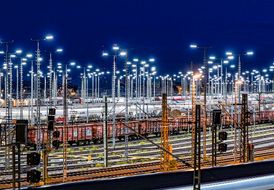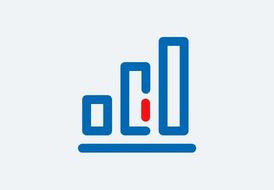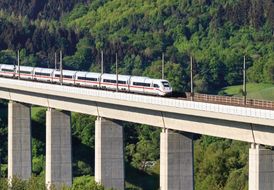Legal topics
Procedure regarding additional financing contributions for Stuttgart 21
At the end of 2016, in order to avoid risks under the statute of limitations, we initiated proceedings in the Stuttgart Administrative Court against the project partners seeking additional financing contributions on the basis of what is known as the negotiation clause. We submitted our surrejoinder in June 2021, to which the defendants responded in a timely fashion in early 2022.
Civil proceedings on infrastructure utilization fees
A large number of disputes relating to train-path and station fees are still pending with the civil courts. This concerns the question of whether, and according to which standards, the civil courts may subject the regulated fees to a further civil court assessment. According to a judgment by the German Federal Supreme Court (Bundesgerichtshof; BGH) in 2011, rail infrastructure usage fees could be reviewed by civil courts for their equitableness using Section 315 of the German Civil Code on the basis of the legal situation before the entry into force of the ERegG, even if they were effective under regulatory law. The European Court of Justice (ECJ) ruled in 2017 that a review of the equitableness of infrastructure charges by civil courts in accordance with Section 315 German Civil Code (Bürgerliches Gesetzbuch; BGB) is incompatible with European railway law. However, the BGH continued to stipulate an antitrust law review by the civil courts. On February 8, 2022, the BGH issued final rulings requiring DB Netz AG to repay regional factor fees. At the same time, the question of whether civil courts may conduct antitrust-law reviews of regulated rail infrastructure charges in the absence of a final decision by the regulatory body is still pending before the ECJ. A decision by the ECJ is likely to be made in 2022.
Antitrust topics
Claims for compensation for damages against airlines
DB Group is pursuing compensation claims for damages against the airlines that were part of the air freight cartel, which, according to the findings of various competition authorities around the world, agreed on kerosene and security surcharges, among other things, from 1999 to at least 2006 at the expense of freight forwarders such as DB Schenker. US actions filed by DB Schenker have now ended in out-of-court settlements. Furthermore, DB Barnsdale AG, which is pooling DB Group’s claims for compensation with those of non-Group parties, has so far concluded out-of-court settlements relating to proceedings pending in Germany with nine airlines in proceedings before the District Court of Cologne. Settlement negotiations are to be conducted with the remaining airlines in the case in order to settle these proceedings.
Claim for damages against truck manufacturers
In December 2017, DB Competition Claims GmbH filed an action against DAF, Daimler, Iveco, MAN and Volvo/Renault Groups in the District Court of Munich for the “truck cartel.” In addition to its own claims, DB Competition Claims GmbH is also asserting the claims of the German Armed Forces and over 40 companies. The action is seeking compensation for damages totaling about€ 500 million. The claims of the German Armed Forces have since been split off into separate negotiations in order to address issues that are specific to procurements by the German Armed Forces. Otherwise, the proceedings are already in the evidence-taking stage so that the experts appointed by the court can determine the damage caused by the cartel.
ANTITRUST FINE in rail freight transport
On April 20, 2021, the EU Commission imposed a fine of about€ 48 million on DBAG, DB Cargo AG and DB Cargo BTT GmbH for agreements in breach of antitrust law in cross-border rail freight transport between Germany, Austria and Belgium during the period from late 2008 to mid-2014.
The agreements disputed by the EU Commission related to transport operated jointly by the rail companies involved, namely the Austrian ÖBB Group and the Belgian SNCB (now Lineas). The DB companies affected have cooperated with the EU Commission and supported it continuously in clarifying the issue.



